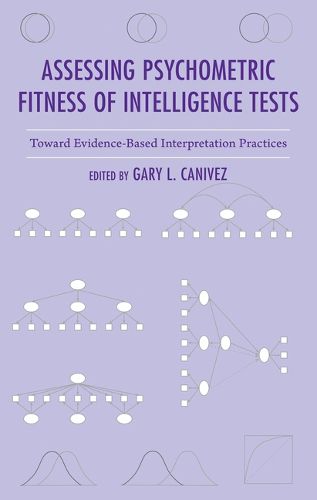Readings Newsletter
Become a Readings Member to make your shopping experience even easier.
Sign in or sign up for free!
You’re not far away from qualifying for FREE standard shipping within Australia
You’ve qualified for FREE standard shipping within Australia
The cart is loading…






Assessing Psychometric Fitness of Intelligence Tests: Toward Evidence-Based Interpretation Practices addresses issues and concerns regarding appropriate ethical and scientific underpinnings for the appropriate interpretation of intelligence tests. Ethical test interpretation requires test users to consider the empirical evidence for individual and all test score comparisons and to make appropriate clinical decisions accordingly. This requires test users to have competencies in advanced psychometric principles. The chapters in this edited volume present a variety of topics, including the intersection of ethical principles, test standards, and psychometric properties that guide evidence-based interpretation; surveys of empirical evidence in the literature for qualifying major intelligence test interpretations, and psychological measurement topics that impact psychometric understanding of what current intelligence tests can and cannot do. This critical discussion has implications for basic undergraduate and graduate instruction, as well as supervision in clinical and research applications.
$9.00 standard shipping within Australia
FREE standard shipping within Australia for orders over $100.00
Express & International shipping calculated at checkout
Assessing Psychometric Fitness of Intelligence Tests: Toward Evidence-Based Interpretation Practices addresses issues and concerns regarding appropriate ethical and scientific underpinnings for the appropriate interpretation of intelligence tests. Ethical test interpretation requires test users to consider the empirical evidence for individual and all test score comparisons and to make appropriate clinical decisions accordingly. This requires test users to have competencies in advanced psychometric principles. The chapters in this edited volume present a variety of topics, including the intersection of ethical principles, test standards, and psychometric properties that guide evidence-based interpretation; surveys of empirical evidence in the literature for qualifying major intelligence test interpretations, and psychological measurement topics that impact psychometric understanding of what current intelligence tests can and cannot do. This critical discussion has implications for basic undergraduate and graduate instruction, as well as supervision in clinical and research applications.